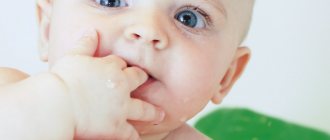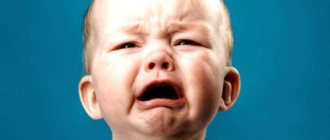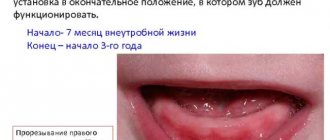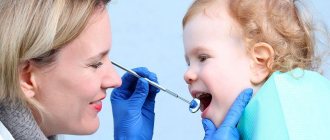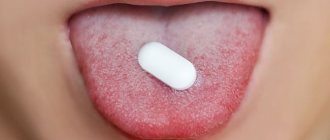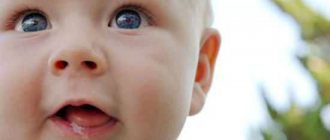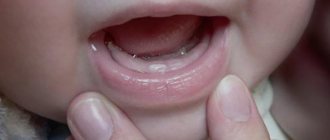Choking on saliva: What are the causes and how to prevent it
Although choking on saliva happens to everyone from time to time, repeatedly choking on saliva can indicate an underlying health problem or bad habit.
Here's what you need to know about choking on saliva, including causes and prevention. Choking on saliva can occur if the muscles involved in swallowing weaken or stop functioning properly due to other health problems. Swallowing and coughing when you have not drunk or have a symptom of choking on saliva. You may also experience the following:
Sometimes choking on saliva may not be a cause for concern. But if it happens frequently, identifying the causes may prevent future occurrences. Possible causes of choking on saliva include:
Acid reflux
Heartburn can also irritate the lining of the esophagus. This can make swallowing difficult and allow saliva to pool in the back of the mouth, causing choking.
Other symptoms of acid reflux include:
Sleep associated with abnormal swallowing
This is a condition in which saliva accumulates in the mouth during sleep and then enters the lungs, leading to aspiration and suffocation. You may wake up gasping for air and choking on your saliva.
Lesions or tumors in the throat
Benign or malignant lesions or tumors in the throat can narrow the esophagus and make it difficult to swallow saliva, causing choking.
Poorly fitting dentures
Saliva production may slow down as your body adjusts to the dentures. If not, consult a doctor. Your dentures may be too high for your mouth or may not fit properly into your bite.
Neurological disorders
Treatment depends on the neurological disorder. Your doctor may prescribe medication to reduce saliva production and teaching techniques to improve swallowing. Medicines to reduce saliva secretion include glycopyrrolate (Robinul) and scopolamine, also known as hyoscine.
alcohol abuse
Choking on saliva can also occur after using heavy alcohol. Alcohol is a sedative. Consuming too much alcohol can slow down muscle response. Being unconscious or incapacitated from drinking too much alcohol can cause saliva to pool in the back of the mouth rather than flow down the throat. Sleeping with your head elevated can improve saliva flow and prevent choking.
Talking excessively
Saliva production continues as you say. If you talk a lot and don't stop swallowing, saliva can move down your trachea into your respiratory system and cause choking. To prevent choking, speak slowly and swallow between phrases and sentences.
Allergies or breathing problems
Other symptoms of an allergy or respiratory issue include:
9. Hypersalivation during pregnancy
This problem may gradually improve. There is no cure, but drinking water can help flush excess saliva from the mouth.
Drug-induced drooling
Some medications may also cause increased saliva production. These include:
You may also experience drooling, difficulty swallowing, and the urge to spit.
Talk to your doctor if producing too much saliva is causing you to choke. Your doctor may switch medications, change the dosage, or prescribe medications to reduce saliva production.
Source
Treatment
Help before diagnosis
If the disorder occurs occasionally and is caused by the habit of talking while eating, specific therapy is not required. The appearance of regular choking while eating, as a result of which a person cannot eat normally, indicates severe damage to the brain or other systems, which requires qualified medical care.
Conservative therapy
Medical tactics consist of eliminating or slowing down the progression of the underlying disease that caused choking. For myasthenia gravis, physiotherapeutic methods and massage are indicated to improve muscle function. In severe situations, when independent food intake is impossible, parenteral nutrition is provided. For etiotropic and pathogenetic treatment, drugs such as:
- Anticholinesterase drugs
. Medicines from the proserin group improve neuromuscular transmission processes and eliminate the causes of choking. To achieve a lasting clinical effect, they are taken for several years. - Glucocorticoids
. Hormones are used in severe forms of encephalitis to prevent brain swelling. They are also recommended for rapid progression of myasthenia gravis and amyotrophic lateral sclerosis. - Antipsychotic drugs
. Prescribed for serious mental disorders, which are accompanied by swallowing disorders and food getting into the larynx. Antipsychotics and tranquilizers are effective for quick relief of symptoms.
I choke on saliva in my sleep
What causes salivation during sleep and what can you do about it? This is worth paying attention to!
Very often, the cause of increased salivation can be illness. This is how our body gives signals that something is going wrong. It would seem like a small thing, but it’s not entirely true.
Runny nose
Let's start with the simple and obvious. Very often drooling is due to a runny nose. At night, the nose gets stuffy, breathing becomes difficult and the person opens his mouth. This is where increased salivation begins. This problem will resolve itself when the runny nose goes away.
Infections in the mouth
Drooling occurs due to diseases of the oral cavity: inflammation of the mucous membrane, gums, caries or periodontal disease. Reproducing bacteria provoke the production, and therefore the release, of an increased amount of saliva. Always remember to take good care of your dental health.
Diseases of the gastrointestinal tract
Inflammation, increased acidity, flatulence - all this leads to excessive salivation at night. In such diseases, salivation works as a protective measure: saliva dilutes gastric juice and reduces acidity. These symptoms should not be ignored so as not to lead to cholecystitis or pancreatitis.
Helminthiasis
Yes, that’s right, it’s not a myth at all. Of course, drooling while you sleep is not a 100% guarantee of the presence of worms, but they may well be there. Worms cause a change in acidity, which, as we have already said, leads to excessive salivation. There is a reason to get checked, get tested or carry out preventive measures.
Nervous system diseases
The symptom may occur during cerebrovascular accident, during Parkinson's disease or with trigeminal neuralgia. The same phenomenon is typical for syringobulbia, polio, vascular pathologies and even oncology.
Endocrine system diseases
Excessive salivation may be a peculiar reaction of the neuroendocrine system to some irritant. It can occur as a result of stress or endocrine diseases (thyroid gland, pituitary gland, hypothalamus). Sometimes observed in diabetes mellitus.
Very often, nighttime drooling occurs due to bad habits. People who use drugs or smokers very often suffer from this unpleasant symptom. There is only one recipe - it's time to give up bad habits.
ADVICE
So what can you do to get rid of nighttime drooling? To begin with, we recommend understanding the reason for its occurrence. If there are no visible reasons, then this is a serious reason to go to the doctor.
To prevent nighttime drooling, you can try changing your sleeping position. If you fall asleep on your side, try to retrain yourself and start falling asleep on your back. If this does not help, you can try placing the pillow higher. Then the head will rise and the mouth will not open.
Sleep-disordered breathing in children
Obstructive breathing disorders during sleep can be assumed when a child's parents or relatives notice respiratory arrests during night sleep. A shortened breathing period is usually caused by a blockage of the airways. Tonsillitis and adenoids in children can grow to a size larger than the lumen of the child's respiratory tract. Inflammation and infection of the lymphoid tissue of the nasopharynx, located on the sides and back wall of the pharynx, lead to their growth and blockage of the airway.
During episodes of blocked breathing, the child may appear to be struggling to breathe (the chest rises and falls during breathing phases), but air does not enter the lungs. Often these episodes are accompanied by spontaneous premature awakening of the child in order to compensate for the lack of breathing. Such periods of respiratory blockage (obstruction) occur several times during the night and cause disruption to the child’s sleep physiology.
Sometimes, due to the inability to carry air and oxygen into the lungs to ensure proper breathing, a decrease in the level of oxygenation of the blood occurs. If these situations are prolonged, there is a risk of severe dysfunction of the heart and lungs.
Obstruction of night breathing is most often detected in children aged 3 to 6 years. Often observed in children with Down syndrome and other congenital pathologies that cause disruption of the movement of air through the respiratory tract (for example, an increase in the size of the tongue or an abnormal decrease in the lower jaw).
What are the causes of obstructive sleep apnea in children?
In children, the most common cause of airway obstruction during sleep is enlarged tonsils and adenoids, which obstruct normal airflow at the level of the upper respiratory tract. Infectious processes contribute to an increase in the size of these lymphoid formations. Large adenoids can even completely block the nasal passages and make it impossible to breathe freely through the nose.
There are many different muscles in the structure of the head and neck that help keep the airways open when you are awake to allow air to pass through when you breathe. When a child falls asleep, muscle tone physiologically decreases, thus allowing the tissues to collapse and impair breathing. If the respiratory flow is partially blocked (by enlarged tonsils) during wakefulness, then during sleep the airways may be completely closed to air.
Obesity can also lead to airway obstruction during sleep. While it is a leading cause in adults, obesity is less likely to cause sleep apnea in children.
A rare cause of obstructive sleep apnea in children is tumors or growth of other tissues in the airways. Some syndromes or birth defects, such as Down syndrome or Pierre-Robin syndrome, can also cause obstructive sleep apnea.
What are the symptoms of obstructive sleep apnea in children?
You can point out the most typical symptoms of obstructive sleep apnea, but these symptoms may manifest differently in each child.
Symptoms of sleep apnea include:
- Periods of absence (cessation) of breathing. In this case, the chest will move in and out, but air and oxygen do not pass through the mouth and nose into the lungs. The duration of these periods varies and is measured in several seconds or more.
- Mouth breathing, snoring, just noisy breathing. Breathing through the nose can be completely blocked by enlarged adenoids or tonsils. The child may have a specific “nasal” voice.
- Sleep does not give the child proper rest. This can occur in the presence or absence of obvious periods of awakening during night sleep.
- Increased daytime sleepiness or excitability. Due to the reduced quality of night sleep, the child has difficulty waking up in the morning, is drowsy or hyperexcitable during the waking period.
- Hyperactivity during daytime wakefulness. There may be problems with behavior, schooling or social problems.
Symptoms of obstructive sleep apnea may resemble other conditions or medical problems. You should always consult a doctor for an accurate diagnosis.
How to treat obstructive sleep apnea?
The treatment method for obstructive sleep apnea will be chosen by your doctor based on several points:
- child’s age, health status, medical history
- causes of airway obstruction
- the possibility or impossibility of carrying out specific procedures, treatment and examinations for your child
- prognosis of the course of the disease
- Your opinion and preferences in treatment will also be taken into account
Treatment of obstructive sleep apnea is based on the causes of its occurrence. Since the most common cause is enlarged adenoids and tonsils, treatment consists of surgical removal. Your otolaryngologist will discuss with you the stages of treatment, the risks and the need for a particular treatment.
If the cause of the disorder is obesity, treatment will be less invasive, including weight loss and, in some cases, the use of CPAP therapy (a special mask during sleep to keep the airways open) may be necessary. This mask creates increased air pressure (CPAP) in the airways. The device is not fully adapted for children and can be difficult for a child to tolerate, since he or she must sleep wearing a mask.
How is obstructive sleep apnea diagnosed?
You should see a doctor for evaluation if your child's breathing becomes noisy during sleep or snoring becomes noticeable. You may be advised to consult an otolaryngologist.
In addition to a general clinical examination, diagnostic procedures may be recommended:
- completion of a sleep questionnaire (by parents, possibly with the help of a doctor)
- examination of the upper respiratory tract by an ENT doctor.
- -Sleep study using polysomnography. This is the best method for diagnosing obstructive sleep apnea, or the “gold standard”. This test can be carried out on a large number of children, however, some of them, especially young ones, may have difficulties due to the child’s lack of cooperation during the test. Two types of studies are possible: polysomnography or cardiorespiratory monitoring (for young children - using a reduced number of electrodes). The child will sleep in a specialized laboratory. During the study, a number of parameters will be recorded:
- brain activity
- electrical activity of the heart
- blood oxygen content
- movements of the chest and abdomen
- muscle (motor) activity
- amount of respiratory flow through the nose and mouth
During sleep, all episodes of apnea or hypopnea will be recorded:
- apnea – complete absence of respiratory flow
- hypopnea – partial decrease in air flow through the upper respiratory tract with a significant decrease in oxygen in the blood
Based on laboratory testing, sleep apnea becomes significant in children if more than 10 episodes are observed per night, or one or more episodes every hour. Some experts define problems as significant if a combination of one or more episodes of apnea and/or hypopnea are recorded every hour.
Symptoms of obstructive sleep apnea may reflect other conditions or medical problems. In any case, consultation with a pediatrician is necessary.
Can a baby choke on drool while sleeping: how to avoid the danger
Children under one year of age often experience increased activity of the salivary glands. This can be caused by various reasons: from teething to acute respiratory disease. The main thing is to correctly determine the cause of this condition. In most cases, this problem does not require treatment and goes away on its own.
Baby drooling is a common occurrence.
Causes of increased salivation at night
If a child chokes on saliva in his sleep, he should be moved from a position lying on his back to his side or stomach, then the mucus will not flow into the lungs, causing a cough. The problem is worse at night because:
This condition should not be considered a pathology; it is normal in children under one year of age.
The most common reason for the active formation of saliva is teething. Also, the volume of mucus secreted increases sharply when a child suffers from acute respiratory infections and acute respiratory viral infections. When the period of recovery begins, this condition passes. The baby begins to choke on saliva because mucus from the mouth constantly gets into the throat, and the baby does not have time to spit it out.
The most likely cause of the problem is active teething
Emergency help for choking on saliva
Parents often wonder whether a baby can choke on saliva and why this happens. This is really possible if the baby sleeps in a supine position. Also, a sleeping baby may choke when burping. To prevent this from happening, after feeding you should keep the baby in an upright position for about 15 minutes and only then put it in the crib.
What to do if the baby's temperature is 38 degrees
Emergency help may be needed if:
In these cases, parents must act correctly so as not to harm the baby.
If a baby chokes
If parents see that the child is choking on saliva, they need to give the baby an upright position as soon as possible.
A baby after six months who can sit can be placed on pillows to sleep in this position; Children up to two to three months are placed on their stomach.
If the baby cannot breathe, you need to take him by the legs, turn him head down and hold him in this position until he spits out mucus or a foreign body. This must be done quickly.
What not to do
When a child is choking and cannot clear his throat, parents should not be nervous, because anxiety always interferes with the correct action. Also, you should not slap the baby sharply on the back - this can push the mucus even further into the respiratory tract.
If the baby screams loudly, you should not interfere with this - with a scream, he can get rid of the abundance of saliva on his own. If there is increased salivation, the baby cannot be limited in liquid; on the contrary, he should drink as much as possible.
Acidic drinks (for example, cranberry juice) should be avoided - they provoke excessive saliva production.
Attention! You should not give your baby bagels or dryers instead of a teether. The baby may bite off a small piece and choke. All rattles with small parts inside that the baby takes into his mouth must be securely closed.
First aid must be provided quickly and correctly
When you need a doctor's help
Cough to the point of vomiting in a child - what to do if a baby is vomiting
If a child chokes on saliva in his sleep due to a runny nose, the snot flows down his throat and interferes with sleep. In this case, you should contact your pediatrician to prescribe antiviral drugs and vasoconstrictor nasal drops. You also need medical help if:
Typically, an infant begins a period of active drooling after six months, when the first milk teeth erupt. However, in some cases this time begins much earlier - at three to four months. In this case, it is necessary to bring your baby to the doctor, since premature appearance of teeth may indicate rickets and other diseases.
When the toddler turns one year old, the activity of the baby's salivary glands gradually slows down, but periodically resumes during the appearance of new pairs of milk teeth. At this time (up to 2.5 years), you should be especially attentive to the health and well-being of the baby and make sure that he does not suffocate from increased salivation during sleep.
Possible consequences and complications
What to do if your child is constantly sick
Situations when a child chokes on saliva are most often characteristic of acute respiratory diseases and the period of teething. There are usually no complications; any baby can choke or choke slightly, it’s not scary.
However, if a child chokes on mucus from a runny nose and finds it difficult to breathe, self-medication or improper treatment can lead to bronchitis (pneumonia). In this case, treatment with antibiotics will be required. If your baby starts coughing, you need to pay attention to this.
Constant contact of saliva on the chin of a newborn can lead to skin irritation: redness, itching, and discomfort.
In this case, it is recommended to lubricate the affected area with any moisturizing baby cream containing panthenol. Also, do not rub irritated skin with a towel.
If your baby begins to drool a lot, you can only gently blot it with soft cotton pads or a microfiber cloth.
Increased activity of the salivary glands is not a disease, but a normal physiological condition
The dangers of increased salivation during sleep
Hypersalivation is a phenomenon of increased salivation. And if this is a typical picture for young children, then in adults it can be a symptom of a serious disease.
Normally, much less saliva should be produced during sleep than during the day. Excessive salivation during sleep is a dangerous phenomenon: not only is it aesthetically unattractive, but there is also a danger of choking on saliva during sleep.
Sleeping on wet sheets is usually not fun either.
Why do you drool in your sleep?
In most diseases, increased salivation continues throughout the day, saliva is released both before sleep and during sleep, and saliva is observed abundantly after sleep.
In addition, a person experiences excessive salivation during sleep:
The causes of nocturnal hypersalivation may lie in the predominance of the parasympathetic nervous system (PNS) during sleep, which innervates the salivary glands. Under its influence, excessively liquid saliva is released.
However, there is also purely nocturnal drooling, which does not appear during the day. The most common causes of nighttime drooling are:
In some cases, a one-time night profuse salivation appears if a person is simply very tired, fell asleep soundly, completely relaxed, his mouth opened in his sleep and a little saliva flowed out.
It happens that due to strong muscle relaxation, saliva flows onto the pillow of a drunk person. You don't have to be an alcoholic to do this - it can happen to anyone.
Saliva is produced abundantly even after smoking - so if you smoke before bed and then quickly and very soundly fall asleep, it is quite possible that you will not be able to resist and saliva will spill onto the pillow.
Complications
Excessive drooling from the mouth affects the skin; a person sleeps for some time with his cheek on a wet pillow, so one of the unpleasant consequences may be a violation of the integrity of the facial skin or the appearance of an infectious pustular rash.
Normally, the body secretes one and a half to two liters of saliva per day. With severe drooling, a person can lose up to 10-12 liters of salivary fluid, which can lead to dehydration that is dangerous for the body. And, of course, there is incomparable psychological discomfort, stress and sleep disturbances.
Treatment
Treatment of increased salivation at night involves, first of all, diagnosing the causes that caused its occurrence and treating the underlying disease.
For diagnosis, you should contact a specialist: gastroenterologist, dentist, endocrinologist, neurologist, therapist. You need to undergo clinical tests and be checked for worms.
The specialist prescribes the necessary studies. Therapeutic treatment is selected by the doctor.
In some cases, medications with an anticholinergic effect (riabal, platifilin, scopolamine) are prescribed, which reduces the amount of saliva produced. However, you should not prescribe these drugs yourself, because side effects may occur.
In addition, drug therapy is usually short-term. And, of course, it is necessary to completely cure all diseases of the oral cavity.
Cryotherapy, a method that allows one to reflexively increase the frequency of swallowing saliva, and homeopathic treatment have proven to be quite effective methods.
In the most difficult cases, with excessive salivation, surgery is performed to remove large salivary glands.
However, this is a very complex operation that can cause a number of other problems: for example, if the facial nerves are damaged, the symmetry of the face is disrupted.
Injecting botulinum toxin into the parotid glands stops saliva production for up to 8 months.
List of used literature:
Reasons for development
The nature of ptyalism may be true or false. True hypersalivation is distinguished by the fact that during the day a person secretes several times more saliva than should be secreted normally. The false form is characterized by a violation of the swallowing function, while the patient feels that a copious amount of saliva has accumulated in his mouth.
Doctors believe that the causes of hypersalivation in an adult may be the following:
- stomatitis - the flow of saliva is provoked by irritation of the oral mucosa, when it is painful for a person to swallow and simply touch the affected surface;
- Parkinson's disease;
- poor blood supply to the brain, vascular pathologies, malignant neoplasms;
- stomach ulcer;
- helminthic infestations;
- the period of gestation in women, especially if pregnancy occurs against the background of severe toxicosis;
- stroke;
- poisoning with salts of heavy metals - mercury, lead, iodine;
- epidemic encephalitis.
Unlike an adult disease, a child drools from the mouth more often for physiological reasons, for example, during the eruption of baby teeth - between the ages of 4 and 12 months. At an
older age, if a child drools, this symptom cannot be ignored, it may indicate the following diseases:
Symptoms of inflammation of the salivary glands
- cerebral palsy;
- disturbances in the functioning of the central nervous system - salivation during sleep is observed, for example, with the disease PPCNS (perinatal damage to the central nervous system) or PEP (perinatal encephalopathy);
- malocclusion;
- pathologies of the nasopharynx and ears - sinusitis, sinusitis, proliferation of adenoids, acute tonsillitis;
- ulcerative stomatitis - when painful ulcers form, the baby finds it difficult to swallow saliva, at night it flows down the cheek, while the baby refuses to eat and sleeps poorly (irritated mucous membrane causes severe discomfort);
- Gingivitis is an inflammation of the soft tissue of the gums. Why do you drool while you sleep? This is the body’s protective reaction to an acute process; during sleep, the mucous membrane tries to recover on its own and wash out the infectious agent from the oral cavity;
- intoxication of the body.
In any case, if an adult or child suffers from increased salivation, it is necessary to consult a doctor; treatment of hypersalivation depends on the underlying cause. Most often, when the underlying problem is eliminated, for example, after treating stomach problems or helminthic infestations, the disease goes away on its own.
Causes of nocturnal hypersalivation
The secretion of saliva in a dream can be a separate symptom of the disease, while during the day a person does not experience increased work of the glands, and he himself only guesses about the problem from a wet pillow or his relatives tell him about it. Most often, such problems arise due to the predominance of the parasympathetic part of the central nervous system, since it is responsible for the functioning of the salivary glands.
Under its influence, saliva becomes too liquid, and a person does not have time to swallow it in a dream.
The most common reasons why a sleeping person has saliva flowing from his mouth:
- difficulty breathing through the nose - problems can arise from ENT diseases (runny nose, sinusitis, sinusitis), allergic reactions, curvature of the bony nasal septum;
- abnormal structure of the jaws - an incorrect bite does not allow the bones to fully close, as a result, saliva flows directly onto the pillow during sleep (this phenomenon is often observed in older people, they suffer from dysfunction of the jaw joint and relaxation of the lower jaw);
- sleep disorders.
The amount of saliva produced may increase even once; this situation is not considered pathological. For example, if a person is too tired or has experienced emotional shock. At the same time, he fell fast asleep, his body was completely relaxed, his mouth opened and a small amount of saliva flowed out.
The same problem is observed in people under the influence of alcohol or after heavy consumption of nicotine - if you drink and smoke before going to bed, it is quite possible that a one-time problem with increased salivation will arise
If there is increased salivation at night in an adult, diabetes mellitus, disease of the thyroid gland, pituitary gland or hypothalamus can be suspected. In this case, the neuroendocrine system reacts violently to any stimulus during the day, and at night responds with increased production of saliva.
